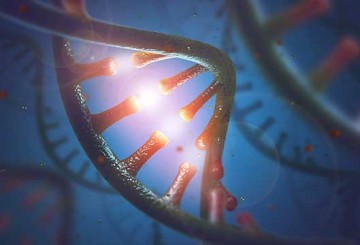Tag: Urology
-

Exploring the Link Between RNA Modification and Prostate Cancer Growth
A Northwestern Medicine study published in the Journal of Clinical Investigation has uncovered a connection between a well-known cancer-related protein and a major RNA modification process, which may inform new treatment strategies against prostate cancer.
-

Identifying Biomarkers to Guide Prostate Cancer Treatment
Biological markers may help predict which patients will benefit most from specific therapies to treat prostate cancer, according to a study published in the journal Cell.
-

Combination Approach May Improve Cancer Treatment Efficacy
Northwestern Medicine investigators have discovered a new combination approach that may improve the efficacy of MYC inhibitor drugs for treating aggressive and treatment-resistant cancers, according to a recent Northwestern Medicine study published in Science Advances.
-

Targeting Tumor Metabolism to Trigger Cancer Cell Death
Northwestern Medicine scientists have developed a promising approach to killing treatment-resistant cancer cells by exploiting their hidden metabolic vulnerabilities, according to a study published in the Proceedings of the National Academy of Sciences (PNAS).
-

Novel Longcoding RNA May Serve as Therapeutic Target for Prostate Cancer
Northwestern Medicine investigators have discovered that a novel long noncoding RNA, which are usually 200 nucleotides longer than typical RNAs, could serve as a prognostic biomarker and therapeutic target for prostate cancer, according to a recent study published in Science Advances.
-

Novel ‘Scaffolding’ Biomaterial Improves Bladder Regeneration and Function
A team of Northwestern scientists have developed a novel “scaffolding” biomaterial that improves bladder tissue regeneration and overall function better than current techniques.
-

Active Surveillance of Prostate Cancer On the Rise
The use of active surveillance and watchful waiting increased from 13.2 percent in 2010 to 53.8 percent in 2020 among patients with intermediate-risk prostate cancer, according to a recent study published in JAMA.
-

Blood Test May Reduce Unnecessary Prostate Cancer Biopsies
A new blood test may help reduce unnecessary prostate biopsies and can detect prostate cancer with similar sensitivity to standard screening in patients across racial and ethnic groups, according to a recent study published in the Journal of Clinical Oncology.
-

Targeting Novel Molecular Mechanisms May Repair Damaged DNA
Northwestern Medicine investigators have discovered new molecular mechanisms underlying DNA repair dysregulation in cancer cells, findings that may inform the development of new targeted therapies for patients that have become resistant to standard treatments.
-

Study Advocates for Alternative Biopsy Approach to Detecting Prostate Cancer
A new Northwestern Medicine study suggests using an alternative approach to prostate biopsy is as effective at detecting cancer as the current approach, but without the risk of infection or need for prophylactic antibiotics.






